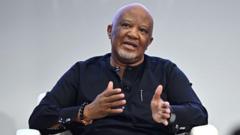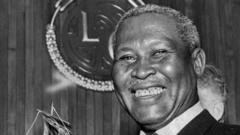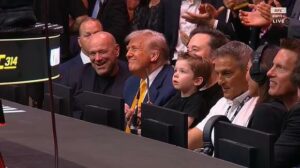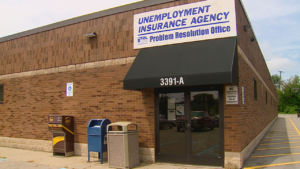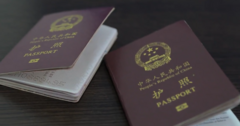A high-profile dispute has arisen between Elon Musk’s satellite internet service, Starlink, and South Africa, centering on alleged racial implications and local black empowerment laws. Musk has notably stated on social media that his firm has been barred from operating in the country due to his racial background, an assertion that has drawn widespread controversy.
**Musk's Starlink Standoff: Tensions Grow with South Africa Over Empowerment Laws**
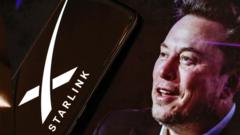
**Musk's Starlink Standoff: Tensions Grow with South Africa Over Empowerment Laws**
Elon Musk's claims about racial barriers affecting Starlink's operations in South Africa spark diplomatic tensions between the US and the nation.
The Independent Communications Authority of South Africa (Icasa) clarified that Starlink has not made any official licensing application. Instead, the South African government insists that compliance with local laws, including regulations requiring 30% ownership by historically disadvantaged groups, is mandatory for foreign companies wishing to operate in the country. This law aims to redress the inequalities stemming from the apartheid era, which ended in 1994.
In light of these tensions, officials from the South African government seem open to negotiations with Musk’s Starlink, particularly Communications Minister Solly Malatsi. However, his potential efforts to relax ownership requirements have made little headway due to opposing political pressures. Fellow ANC lawmakers have voiced strong opposition to any consideration of amending the laws, insisting that compliance is non-negotiable.
Musk’s comments have ignited a broader discourse about racial dynamics and ownership in South Africa, echoing sentiments expressed by former President Trump and raising concerns about deteriorating US-South Africa relations. Despite the unique challenges faced by Starlink in South Africa, the company has continued to establish itself in other African nations, exemplifying the complex landscape of internet services on the continent.
Both Musk and the South African government now face the pressing challenge of navigating these disputes to potentially bridge a pathway for collaboration on internet access for millions still lacking connectivity in the region.
In light of these tensions, officials from the South African government seem open to negotiations with Musk’s Starlink, particularly Communications Minister Solly Malatsi. However, his potential efforts to relax ownership requirements have made little headway due to opposing political pressures. Fellow ANC lawmakers have voiced strong opposition to any consideration of amending the laws, insisting that compliance is non-negotiable.
Musk’s comments have ignited a broader discourse about racial dynamics and ownership in South Africa, echoing sentiments expressed by former President Trump and raising concerns about deteriorating US-South Africa relations. Despite the unique challenges faced by Starlink in South Africa, the company has continued to establish itself in other African nations, exemplifying the complex landscape of internet services on the continent.
Both Musk and the South African government now face the pressing challenge of navigating these disputes to potentially bridge a pathway for collaboration on internet access for millions still lacking connectivity in the region.








